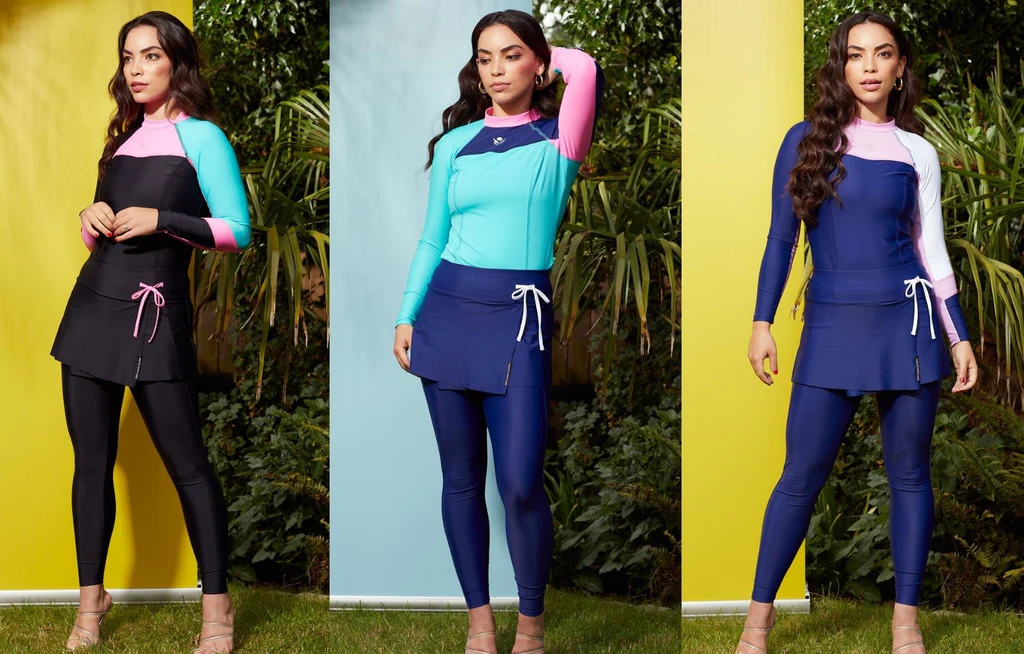
The burkini, a full-body swimsuit designed for Muslim women who want to maintain their modesty while swimming, has become a symbol of resistance and empowerment in the fight against Islamophobia. The burkini has been at the center of debates and controversies, with some advocating for its ban and others celebrating it as a symbol of religious and cultural freedom. In this article, we will explore the issue of the burkini and the fight against Islamophobia, examining the challenges faced by Muslim women and the ways in which the burkini can challenge stereotypes and promote inclusivity.
The challenges faced by Muslim women
Muslim women face multiple challenges when it comes to their religious dress and appearance. They may feel pressure to conform to certain beauty standards, which can be difficult to reconcile with their religious and cultural values. Muslim women are often subject to stereotypes and discrimination based on their religious dress and appearance, which can lead to feelings of self-consciousness and shame.
The burkini has become a way for Muslim women to challenge these stereotypes and embrace their bodies. The burkini allows Muslim women to participate in water sports and swimming without feeling exposed or judged. By embracing the burkini, Muslim women are asserting their right to self-expression and autonomy, and challenging the notion that their bodies need to conform to a certain standard.
The burkini and the fight against Islamophobia
The burkini has become a symbol of resistance and empowerment in the fight against Islamophobia. It challenges the notion that Muslim women’s bodies need to be controlled and regulated, and asserts their right to religious and cultural freedom.
Despite its empowering message, the burkini has been a source of controversy and debate. Some have advocated for its ban, arguing that it is a symbol of religious extremism and a threat to public safety. However, these arguments are based on misconceptions and stereotypes about Islam and Muslim women’s bodies. The burkini is not a threat to public safety, and Muslim women have the right to dress in a way that reflects their religious and cultural values.
The burkini can challenge stereotypes and promote inclusivity in a number of ways. By promoting the burkini, we can challenge the idea that Muslim women’s bodies are inherently sexual or threatening. We can promote a more inclusive and diverse society that recognizes and respects different cultural and religious values. We can also challenge the idea that Muslim women are oppressed and need to be saved by Western society. Muslim women are capable of making their own choices and decisions, and the burkini is a reflection of their agency and autonomy.
The importance of representation
Representation is crucial in the fight against Islamophobia. Then the burkini provides an opportunity for Muslim women to be represented in a positive and empowering way, and to challenge the stereotypes that are often associated with their religious dress and appearance.
By featuring Muslim women in advertising campaigns and promoting the burkini, we can promote inclusivity and diversity in the fashion industry and beyond. Then we can challenge the narrow-minded and exclusive standards of beauty, and embrace different body types and cultural identities. We can also promote a more inclusive and diverse society that recognizes and respects different cultural and religious values.
Conclusion
The burkini and the fight against Islamophobia is a complex issue that involves challenges, stereotypes, and resistance. Muslim women face multiple obstacles when it comes to their religious dress and appearance, including pressure to conform to certain beauty standards and discrimination based on their religious dress. The burkini challenges these stereotypes and promotes inclusivity and diversity, allowing Muslim women to assert their autonomy and agency. Then by promoting the burkini and featuring Muslim women in advertising campaigns, we can challenge the narrow-minded and exclusive standards of beauty, and promote a more inclusive and diverse society that recognizes and respects different cultural and religious values.

